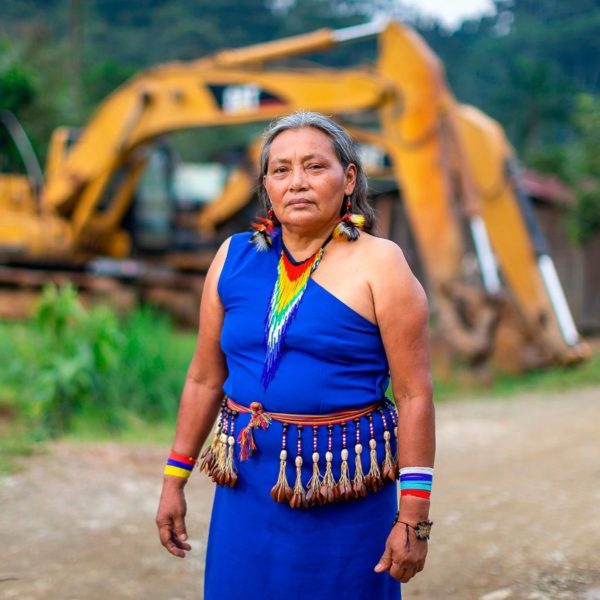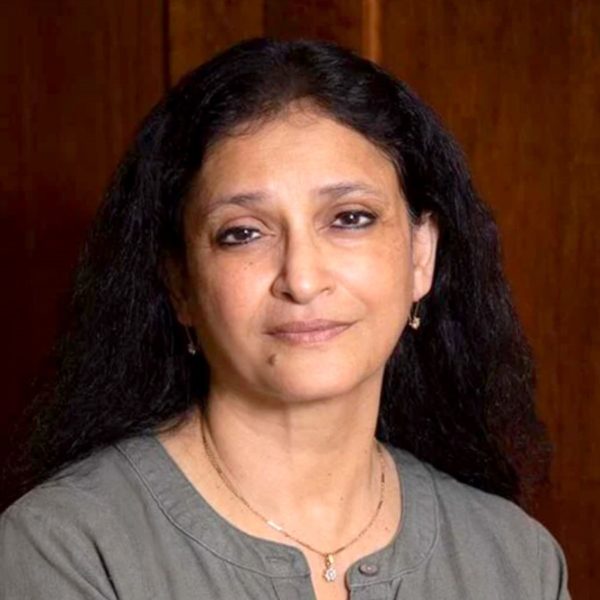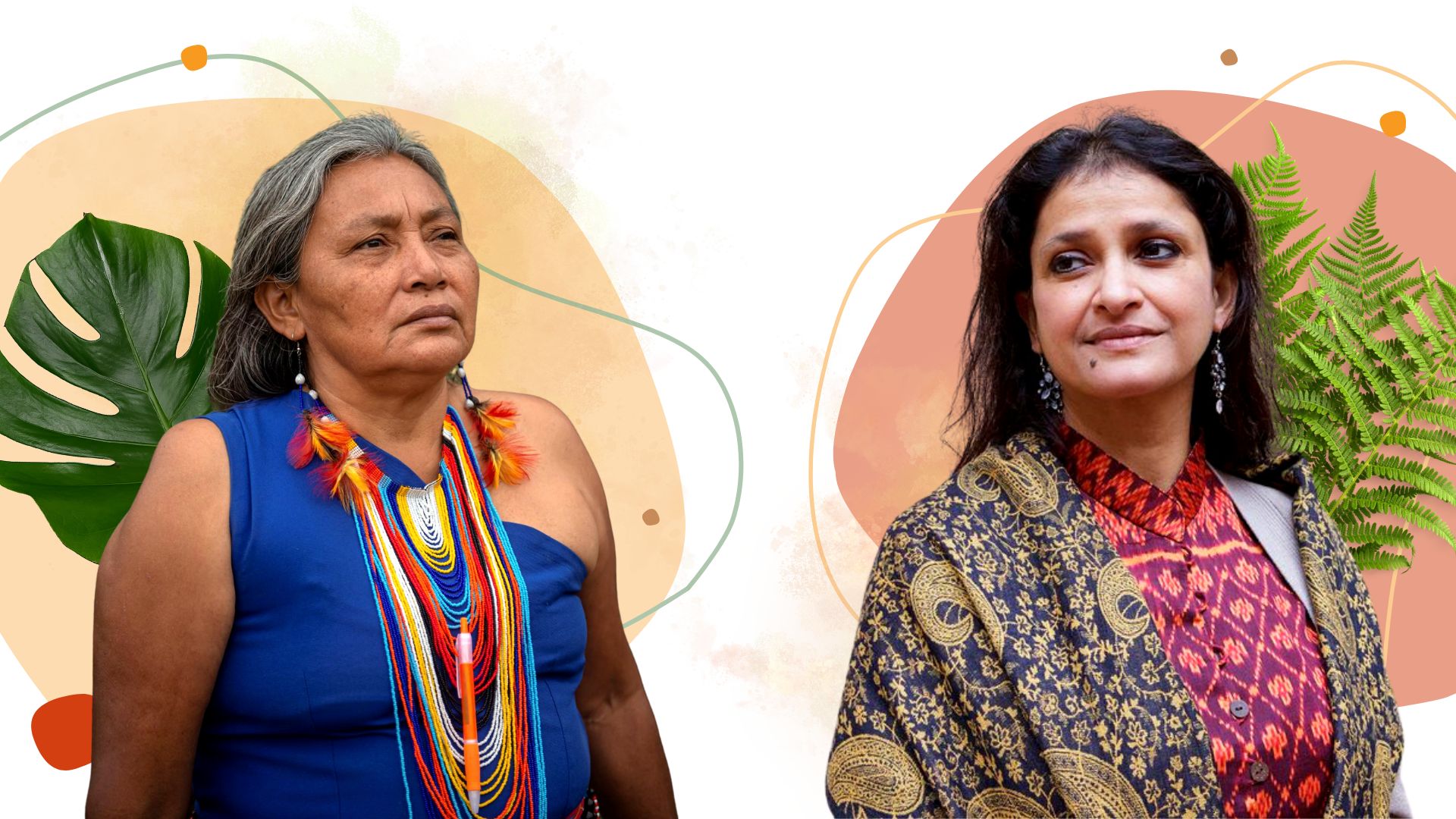The 2022 Paul K. Feyerabend Awards recognize the work of Indigenous leader Josefina Tunki and human rights advocate Anuradha Mittal. Consortium Member NADA from Gabon was also awarded a grant in the same year
First published on 02/17/2023, and last updated on 03/13/2023
Shared By Paul K. Feyerabend Foundation
The Paul K. Feyerabend Foundation has awarded its two 2022 Awards to Josefina Antonieta Tunki Tiris (Executive President of the Government Council of the Shuar Arutam People) and Anuradha Mittal (Executive Director of the Oakland Institute). The Government Council of the Shuar Arutam People is a Member of the ICCA Consortium, and Anuradha Mittal is an Honorary member of the consortium.
The Foundation is currently receiving nominations for 2023. Please visit this webpage for more information.
Josefina Antonieta Tunki Tiris
Josefina Antonieta Tunki Tiris (known as Tunki to her colleagues and friends) is the first woman Executive President of the Government Council of the Shuar Arutam People (Consejo de Gobierno del Pueblo Shuar Arutam, ICCA Consortium Member) in Ecuador. Her People are currently defending their territory of life against multiple difficulties and threats; notably, the threats are coming from a mining company seeking to exploit gold and copper in the territory of the Cordillera del Condor.

Since being elected to the leadership in 2019, Tunki has demonstrated her firm respect for the collective decisions expressed in the ‘plan for life’ (translated from Spanish ‘plan de vida’) of her People. Among other initiatives, she has filed a complaint with the International Labour Organization against the Ecuadorian state for non-compliance with Convention 169. Under her leadership—after a broad deliberative process within the community—the council has applied for the Shuar Arutam territory to be included in the global database of territories of life— the ICCA Registry. For her firm intention to conserve bio-cultural diversity and refusing to make the Cordillera del Condor a place of extractive destruction, Tunki and other leaders and lawyers of the Shuar Arutam people have suffered under intimidation and threats.
Fortunately, the process of resistance driven by Tunki is strengthening the determination of the Shuar Arutam People, and its women in particular.
The Award sheds light on the international community’s awareness of the struggles faced by Indigenous Peoples in defending their lands and cultures against the destructive practices of state governments and corporations. It reflects the community’s support for Indigenous leaders who speak out against the self-proclaimed “green” initiatives that further harm nature and violate Indigenous rights.
Anuradha Mittal
Anuradha Mittal (Honorary member of ICCA Consortium) has been recognized as a fearless and powerful voice for those marginalized by their governments. In 2004, Anuradha founded the Oakland Institute, which she still leads. She has been relentlessly challenging failed development models and exposing corrupt governments and corporations engaged in land grabbing and the takeover of local and traditional food systems.

The Institute conducts rigorous research and advocacy to defend marginalized communities’ human rights and advance social and environmental justice worldwide. Through her leadership, the organization has fought against land grabs in dozens of countries on all continents – from Sri Lanka to Nicaragua, Ethiopia to the USA – producing powerful reports highlighting their efforts. Both the organization and Anuradha herself have faced pressure, threats, and smear campaigns, but they remain steadfast in their dedication to the cause.
When asked how she measures success, Anuradha once said that “…the greatest markers of success are the ‘big wins’ – changes in legislation, the halting of detrimental land deals, the return of land, court victories, and so on. These outcomes, when they occur, have vast implications for communities on the ground. Most important, though, is our accountability and relationship with the impacted communities. Our ability to appropriately support local groups, elevate the voices of the impacted, and work in solidarity to advocate for change is the single most important measure of success for us….”
Paul K. Feyerabend Foundation’s work
The work of the Paul K. Feyerabend Foundation and ICCA Consortium have been beautifully overlapping for many years, and these are not the first Awards or support to initiatives assigned to members of the consortium. The reasons for this convergence are many, including the fact that the Paul K. Feyerabend Foundation works with the help of more than 200 Nominators, many of whom are close to the Consortium.
For more about the work of the Paul K. Feyerabend Foundation and the call for 2023 submissions, please visit their website.
Among the projects supported by the Paul K. Feyerabend Foundation in 2022 is an initiative by NADA, a Member of the ICCA Consortium in Gabon. The initiative supports four villages to document, manage and defend their territories of life while creating solidarity among them all through the exchange of experience and mutual learning.
NADA is helping the communities decide what they need. Some of the needs described by the communities are:
- Demarcating their territories and sacred areas;
- Documenting traditional knowledge;
- Setting up community patrols;
- Actively managing some specific ‘gifts of nature’; and
- Sensitizing authorities and neighboring villages.
Later, the communities will also manage the funds to support their plans and monitor their results. Equally important as the desired results are the processes by which each community becomes better aware of its governance and management capacities and collective rights and responsibilities about its territory of life.
